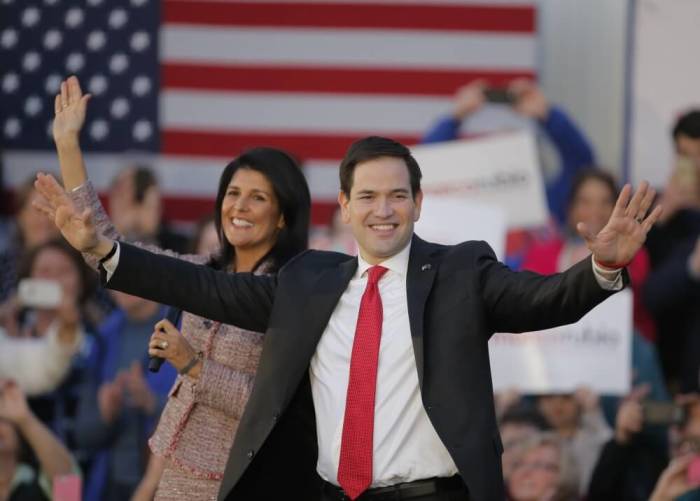5 things to know about GOP presidential candidate Nikki Haley

1. Consistent Trump critic for most of the 2016 election cycle
Haley, like many elected Republicans at the time, did not react positively to the insurgent candidacy of Donald Trump for the Republican nomination in 2016. In her rebuttal to President Obama’s State of the Union address in 2016, she took multiple veiled shots at the then-Republican frontrunner. “During anxious times, it can be tempting to follow the siren call of the angriest voices,” she said. “We must resist that temptation.”
Weighing in on Trump’s immigration policies viewed by critics as overly restrictive, Haley declared that “No one who is willing to work hard, abide by our laws and love our traditions should ever feel unwelcome in this country.” Addressing Trump’s style, Haley lamented that “there’s a tendency to falsely equate noise with results.”
“Some people think that you have to be the loudest voice in the room to make a difference. That’s just not true,” she added. “The best thing we can do is turn down the volume. When the sound is quieter, you can actually hear what someone else is saying and that can make a world of difference.”
Never forget Nikki Haley in 2016:
— Rex Chapman???????? (@RexChapman) August 25, 2020
“I will not stop until we fight a man ( @realDonaldTrump ) that chooses not to disavow the KKK, that is not a part of our party.”
It is now...pic.twitter.com/q9YJETB3LJ
Haley supported Sen. Marco Rubio, R-Fla., in the 2016 Republican primary. As she campaigned with her preferred candidate, she vowed to “fight a man that chooses not to disavow the KKK.” While she did not mention Trump by name, her remarks came after the then-candidate faced criticism for suggesting that he did not know who white supremacist David Duke was.
“That is not a part of our party, that’s not who we want as president, we will not allow that in our country,” she insisted. “That is not who our Republican Party is. That’s not who America is.”
Ryan Foley is a reporter for The Christian Post. He can be reached at: ryan.foley@christianpost.com





























